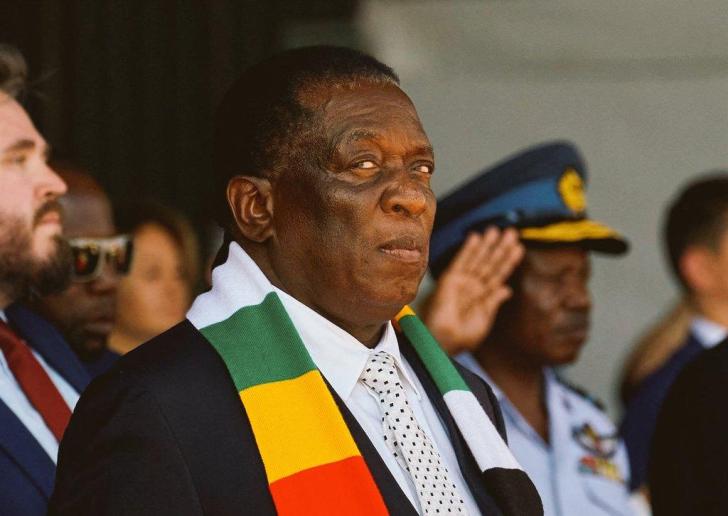News / National
Mnangagwa fears SADC Summit protests
25 Jul 2024 at 12:16hrs |
0 Views

In anticipation of the Southern African Development Community (SADC) summit in Harare next month, the Zimbabwean government is cracking down on gatherings and dissent due to fears of protests in front of regional leaders. President Emmerson Mnangagwa's government views the SADC as crucial for political legitimacy, especially after the rejection of last year's flawed general elections by the SADC election observer mission.
The government has heavily invested in infrastructure for the summit, including building roads, villas, refurbishing hotels, and buying buses. Today, police violently disrupted a meeting of the Zimbabwe National Students Union General Council at the Zesa National Training Centre in Harare, assaulting most of the 60 students present and arresting some. This action violated the students' constitutional rights to freedom of assembly, association, and expression.
Recently, there has been a wave of arbitrary arrests, detentions, and harassment by police to clamp down on discontent. Former minister and MP Jameson Timba and 78 others were arrested for gathering for a braai in Avondale, Harare, on June 16 to commemorate South Africa's Soweto Uprising (Youth Day). Opposition leader Job Sikhala was released on January 30 after 595 days in prison. He was initially charged with inciting public violence and convicted by a magistrate's court, but the High Court dismissed the conviction and acquitted him on another charge of communicating false statements.
The rights to freedom of expression, association, and peaceful assembly are severely restricted, especially during the election period, and now ahead of the SADC summit. Opposition members and those associated with the opposition face widespread repression, including arbitrary detention and prosecution. The recently enacted "Patriotic Act," an amendment to the Criminal Law (Codification and Reform) Act, imposes further restrictions and harsh penalties on activists and critics.
The government has heavily invested in infrastructure for the summit, including building roads, villas, refurbishing hotels, and buying buses. Today, police violently disrupted a meeting of the Zimbabwe National Students Union General Council at the Zesa National Training Centre in Harare, assaulting most of the 60 students present and arresting some. This action violated the students' constitutional rights to freedom of assembly, association, and expression.
Recently, there has been a wave of arbitrary arrests, detentions, and harassment by police to clamp down on discontent. Former minister and MP Jameson Timba and 78 others were arrested for gathering for a braai in Avondale, Harare, on June 16 to commemorate South Africa's Soweto Uprising (Youth Day). Opposition leader Job Sikhala was released on January 30 after 595 days in prison. He was initially charged with inciting public violence and convicted by a magistrate's court, but the High Court dismissed the conviction and acquitted him on another charge of communicating false statements.
The rights to freedom of expression, association, and peaceful assembly are severely restricted, especially during the election period, and now ahead of the SADC summit. Opposition members and those associated with the opposition face widespread repression, including arbitrary detention and prosecution. The recently enacted "Patriotic Act," an amendment to the Criminal Law (Codification and Reform) Act, imposes further restrictions and harsh penalties on activists and critics.
Source - online
Join the discussion
Loading comments…
































